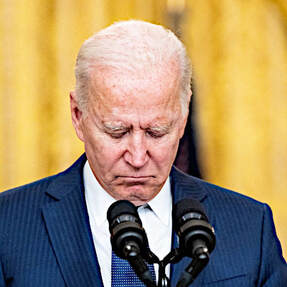
ISIS-Khorasan (ISIS-K), the version of the Islamic State in Afghanistan, is the mortal enemy of the Taliban. As amazing as this sounds, ISIS-K believes the reactionary Taliban are too “liberal” and do not adhere rigorously enough to Islamic law and principles. It is not far-fetched to imagine that the Taliban would welcome a U.S. initiative to rid Afghanistan of ISIS terrorists. It may be a stretch, but given that cleansing the country of ISIS is very much in the Taliban’s interest, there is a possibility that the Taliban might share intelligence regarding ISIS havens and hideouts. It is likely that they know better than we do where these jihadists hang out.
Our capacity to launch drone and/or manned air strikes on ISIS positions has been substantially reduced in recent years. In addition to relinquishing our bases in Afghanistan, we have also closed down the air bases we once maintained in neighboring countries. The closest U.S. base is in the Persian Gulf, almost 2,000 miles from Afghanistan, a distance increased by having to avoid Iranian air space. An alternative to conducting such long-distance operations would be to reposition one of the two carriers in the U.S. Navy’s Fifth Fleet close to Pakistan’s Arabian Sea coast, which would place American air power within only a thousand miles of ISIS-K targets.
No ISIS-K hideout should be off-limits to American air strikes. Neighboring countries should be warned that if they allow the jihadists sanctuary in their lands, the U.S. will nevertheless seek them out and strike at them wherever they are. We know that ISIS-K fighters are concentrated in two small provinces just east of Kabul, bordering Pakistan. The days when we permitted groups such as the Taliban to slip over the Pakistan border to safe havens must be past.
Ridding Afghanistan of the Taliban’s mortal enemy should be viewed as an opening to get some concessions in return from the Taliban. For example, continuing to allow Afghans who aided the U.S. over the last 20 years to leave and authorizing the U.S. to use Afghan airports to fly them out. Any future agreements with the Taliban must be on a quid pro quo basis and not a repeat of the disastrous Trump/Pompeo deal where one party—the Taliban—got everything it wanted while the other party—the U.S.—received nothing in return.
The U.S. should do everything it can to forge a coalition of like-minded nations to go after ISIS-K. Multilateral support is always better than going it alone.
The need to respond powerfully to this ISIS attack is acute. We cannot allow atrocities such as this to go unanswered or unpunished.
Dick Hermann
August 27, 2021





 RSS Feed
RSS Feed